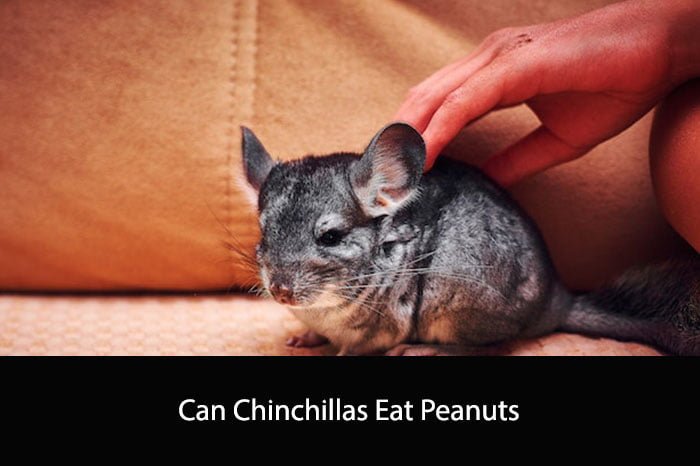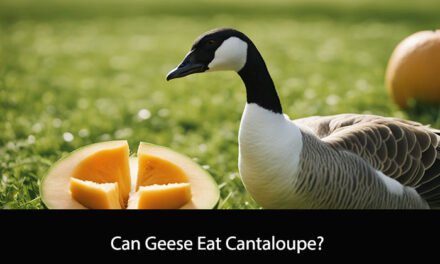Chinchillas are adorable and fluffy creatures that make great pets. As responsible pet owners, we want to ensure that we provide them with a healthy and balanced diet. While chinchillas are herbivores, they can eat a variety of foods, including fruits, vegetables, and hay. However, as with any pet, it’s important to be cautious about what we feed them.
One food that many people wonder about is peanuts. Peanuts are a popular snack for humans, but can chinchillas eat peanuts too? The answer is no, chinchillas should not eat peanuts. Peanuts are high in fat and protein, which can be harmful to chinchillas. In addition, peanuts can be difficult for chinchillas to digest, which can lead to digestive problems. It’s important to avoid feeding your chinchilla peanuts and opt for healthier snacks instead.

Can Chinchillas Eat Peanuts?
Nutritional Value of Peanuts
Peanuts are a popular snack for humans and are often used in various dishes. However, when it comes to chinchillas, peanuts should be avoided. Peanuts are high in fat and protein, which are not ideal for chinchillas. Chinchillas require a diet that is low in fat and protein, and high in fiber.
While peanuts do contain some vitamins and minerals, such as vitamin E and magnesium, they are not essential for chinchillas. Chinchillas can obtain all the necessary nutrients from their regular diet of hay, pellets, and fresh water.
Potential Health Risks
Feeding peanuts to chinchillas can lead to various health problems. Peanuts are high in fat, which can cause obesity in chinchillas. Obesity can lead to other health problems such as diabetes, heart disease, and liver problems.
Peanuts also contain aflatoxins, which are toxic substances produced by a fungus that can grow on peanuts. Aflatoxins can cause liver damage and even cancer in chinchillas.
In addition, peanuts can cause digestive problems in chinchillas. Chinchillas have sensitive digestive systems and cannot handle foods that are high in fat and protein. Feeding peanuts to chinchillas can cause diarrhea, bloating, and other digestive problems.
In conclusion, chinchillas should not be fed peanuts. While peanuts do contain some vitamins and minerals, they are not essential for chinchillas and can cause various health problems. Chinchillas require a diet that is low in fat and protein, and high in fiber.
Digestive System of Chinchillas
Chinchillas are herbivores, which means that their digestive system is designed to process plant-based foods. They have a unique digestive system that allows them to extract nutrients from their food efficiently. In this section, we will discuss the digestive system of chinchillas and how it relates to their ability to eat peanuts.
Unique Features
Chinchillas have a unique digestive system that is adapted to their herbivorous diet. They have a large cecum, which is a pouch located at the beginning of the large intestine. The cecum contains bacteria that help break down cellulose, a complex carbohydrate found in plant-based foods. Chinchillas are able to extract nutrients from cellulose more efficiently than other animals, which allows them to thrive on a diet of hay, pellets, and fresh vegetables.
Another unique feature of the chinchilla’s digestive system is their dental formula. They have four incisors and no canines, which allows them to grind their food efficiently. Their molars are also adapted to grinding, which helps them break down tough plant fibers.
Impact of Peanuts
While chinchillas are able to extract nutrients from plant-based foods efficiently, they are not able to digest certain foods. Peanuts are not recommended for chinchillas because they are high in fat and can cause digestive issues. Chinchillas have a sensitive digestive system, and foods that are high in fat can cause diarrhea and other health problems.
In addition to their high fat content, peanuts also contain aflatoxins, which are toxic substances produced by certain types of fungi. Aflatoxins can cause liver damage and other health problems in chinchillas. For these reasons, it is best to avoid feeding peanuts to chinchillas.
In conclusion, chinchillas have a unique digestive system that allows them to extract nutrients from plant-based foods efficiently. However, they are not able to digest certain foods, including peanuts. Peanuts are high in fat and contain aflatoxins, which can cause digestive issues and other health problems in chinchillas. It is important to provide chinchillas with a balanced diet that is appropriate for their digestive system.
Safe Foods for Chinchillas
As responsible chinchilla owners, we always want to ensure that our furry friends are getting the best possible nutrition. It’s essential to know what foods are safe and healthy for chinchillas to eat to avoid any potential health problems. Here are some safe foods for chinchillas that you can include in their diet:
Hay
Hay is an essential part of a chinchilla’s diet. It provides them with the necessary fiber needed for healthy digestion. Timothy hay is an excellent choice for chinchillas, and it should be available to them at all times.
Pellets
Pellets are another essential part of a chinchilla’s diet. They should be high in fiber, low in protein, and free from any added sugars or artificial colors. Pellets should make up a significant portion of a chinchilla’s diet, but they should not be the only food they eat.
Fresh Vegetables
Fresh vegetables can be given to chinchillas in small quantities as a treat. They should be washed thoroughly and cut into small pieces before being offered to your chinchilla. Some safe vegetables for chinchillas include kale, spinach, carrots, and celery.
Fresh Fruits
Fresh fruits can also be given to chinchillas as a treat, but they should be given in moderation due to their high sugar content. Some safe fruits for chinchillas include apples, bananas, and strawberries.
Water
Water is essential for chinchillas, and it should be available to them at all times. It’s best to provide them with fresh, clean water in a water bottle to avoid any contamination.
In conclusion, these safe foods for chinchillas can help provide them with the necessary nutrients needed for a healthy diet. It’s important to remember that chinchillas have sensitive digestive systems, so any new foods should be introduced slowly and in small quantities.

Unsafe Foods for Chinchillas
As responsible chinchilla owners, it is our duty to provide our pets with a healthy and balanced diet. While there are many foods that are safe and beneficial for chinchillas, there are also some foods that should be avoided. In this section, we will discuss some of the unsafe foods for chinchillas.
Fatty Foods
Chinchillas are herbivores and their digestive systems are not designed to handle fatty foods. Foods that are high in fat can cause digestive problems and even lead to obesity. Some examples of fatty foods that should be avoided include:
- Nuts (such as peanuts, almonds, and cashews)
- Seeds (such as sunflower seeds and pumpkin seeds)
- Avocado
- Coconut
Sugary Foods
Chinchillas have a low tolerance for sugar and too much sugar in their diet can lead to health problems such as dental issues and obesity. Some examples of sugary foods that should be avoided include:
- Candy
- Chocolate
- Dried fruit (such as raisins and cranberries)
- Sweetened cereal
Human Foods
While it may be tempting to share our meals with our chinchillas, it is important to remember that their dietary needs are different from ours. Some human foods can be harmful to chinchillas and should be avoided. Some examples of human foods that should be avoided include:
- Processed foods (such as chips and crackers)
- Dairy products (such as cheese and milk)
- Meat
- Bread
In conclusion, it is important to provide our chinchillas with a healthy and balanced diet. Avoiding fatty foods, sugary foods, and human foods can help keep our pets healthy and happy.
How to Introduce New Foods
When introducing new foods to your chinchilla, it is important to do so gradually. This will help to prevent any digestive upsets or other health issues that can arise from sudden dietary changes. Here are some steps to follow when introducing new foods to your chinchilla:
- Start with small amounts: Begin by offering your chinchilla a small amount of the new food. This will help them to get used to the taste and texture without overwhelming their digestive system.
- Monitor for any adverse reactions: Keep an eye on your chinchilla for any signs of digestive upset or other adverse reactions. These may include diarrhea, vomiting, or changes in behavior. If you notice any of these symptoms, stop feeding the new food and consult with your veterinarian.
- Gradually increase the amount: Once your chinchilla has become accustomed to the new food, you can gradually increase the amount that you offer. However, it is important to do so slowly to avoid overwhelming their digestive system.
- Offer a variety of foods: In addition to introducing new foods gradually, it is also important to offer a variety of foods to your chinchilla. This will help to ensure that they are getting all of the nutrients that they need to stay healthy.
By following these steps, you can introduce new foods to your chinchilla in a safe and effective manner. Remember to always consult with your veterinarian before making any changes to your chinchilla’s diet.
Conclusion
In conclusion, chinchillas can eat peanuts, but it is not recommended as a regular part of their diet. Peanuts are high in fat and can cause digestive issues for chinchillas if consumed in large quantities.
While chinchillas may enjoy the taste of peanuts, it is important to remember that they are herbivores and their diet should consist mainly of hay, pellets, and fresh vegetables.
If you do choose to give your chinchilla peanuts as a treat, make sure to do so in moderation and only as an occasional snack. It is also important to avoid giving your chinchilla any peanuts that are salted or coated in sugar, as these can be harmful to their health.
Overall, it is best to stick to a balanced diet for your chinchilla to ensure they stay healthy and happy.

Frequently Asked Questions
What kind of nuts are safe for chinchillas to eat?
Chinchillas can eat certain types of nuts, but it’s important to be careful because many nuts are high in fat and can cause health problems for your furry friend. Safe nuts for chinchillas to eat include almonds, hazelnuts, and walnuts. However, it’s important to remember that nuts should only be given as an occasional treat, as they are not a part of a chinchilla’s natural diet.
What are the best snacks for chinchillas?
The best snacks for chinchillas are those that are high in fiber and low in fat. Good options include hay cubes, dried rose hips, and small amounts of fresh fruits and vegetables. It’s important to remember that treats should only make up a small part of your chinchilla’s diet, and should not be given in excess.
Can chinchillas eat sunflower seeds?
Sunflower seeds are not recommended for chinchillas. They are high in fat and can cause health problems such as obesity and digestive issues. It’s best to stick to other types of treats that are safer for your chinchilla.
What vegetables are safe for chinchillas to eat?
Chinchillas can eat a variety of vegetables, but it’s important to choose those that are low in sugar and high in fiber. Good options include kale, spinach, and carrots. However, it’s important to introduce new foods slowly and in small amounts, as sudden changes in diet can cause digestive issues.
What foods should be avoided when feeding chinchillas?
Foods that should be avoided when feeding chinchillas include anything high in sugar or fat, such as chocolate, candy, and junk food. It’s also important to avoid foods that are toxic to chinchillas, such as avocado and onion.
Can chinchillas eat raisins?
Raisins are not recommended for chinchillas. They are high in sugar and can cause digestive issues. It’s best to stick to other types of treats that are safer for your chinchilla.





